Funding and accelerating a disruptive marine risk start-up
Reinventing the maritime insurance sector
The maritime industry is considered the backbone of global trade, with more than 80% of the world's goods transported by ship. This amounts to billions of tons of seaborne goods, every year [1].
And yet, it remains one of the final frontiers of digitalisation.
This is something Tony Hildrew, CEO and founder of Ceto, is on a mission to radically change.
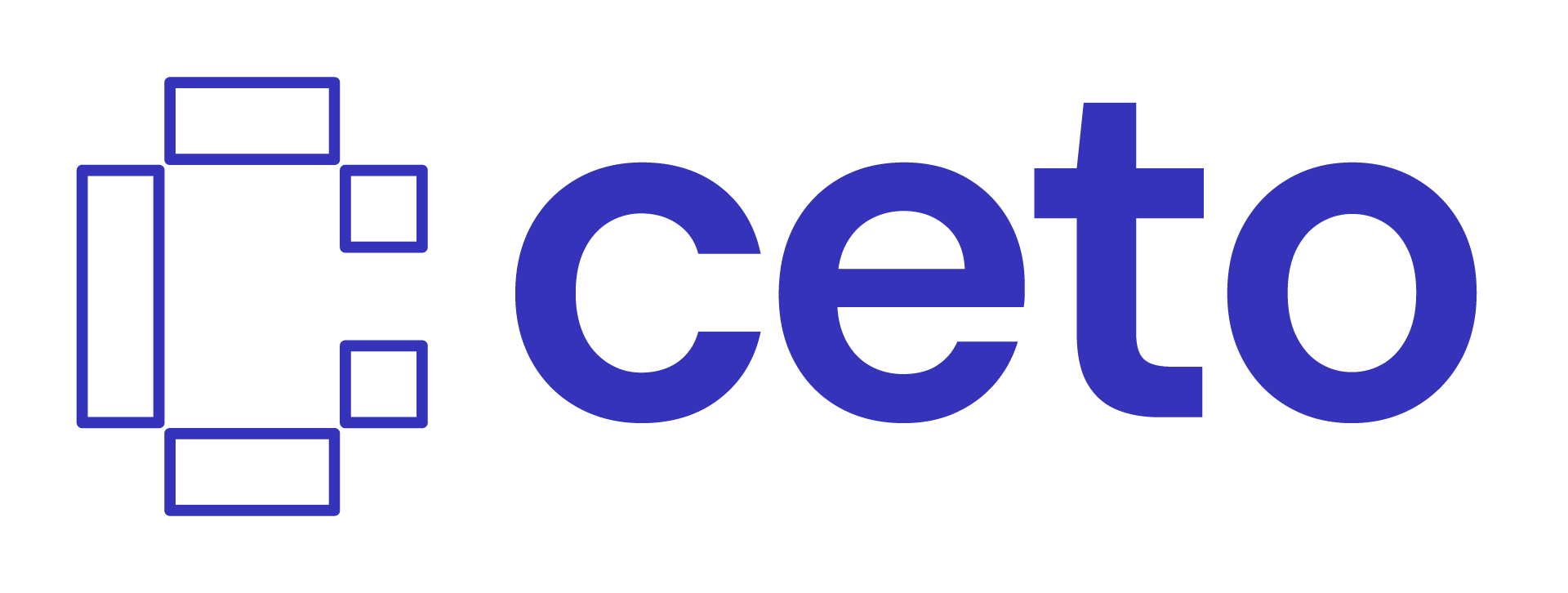
The founder
For Hildrew, that mission began with a career talk by a former student of his school who’d joined the Merchant Navy.
“It seemed like a really interesting career,” he says. “Growing up in a low-income family, the opportunity to travel the world for free while earning a lot of money sounded right up my street.”
After completing a cadetship, and training at South Tyneside College, Hildrew served numerous stints at sea. From superyachts to roll-on roll-off ferries, he got to know the complexities and intricacies of modern vessels, and the noise and heat of ships' engine rooms.
With eight years' experience under his belt and a problem-solving mindset from a young age, it was only a matter of time until he started his own business – given the right opportunity.
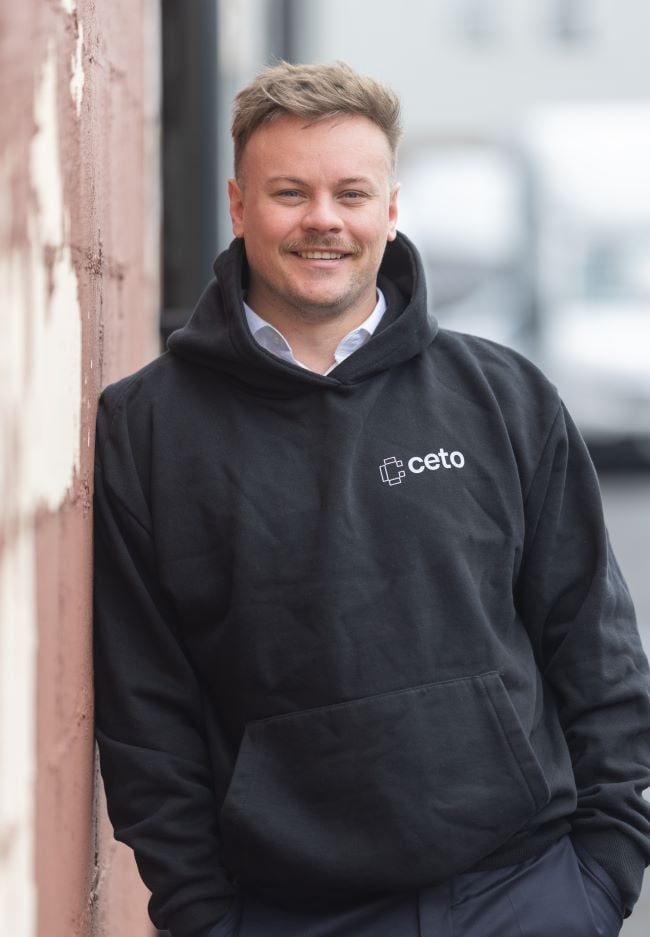
The problem
Eureka moments sometimes result from unremarkable circumstances. Hildrew’s struck when insurance renewal documents crossed his desk.
“The broker we were working with for renewals wasn't great, and it was a really difficult process,” he says. So he set about streamlining this – and uncovered a much bigger issue.
“It baffled me that the insurance industry wasn’t trying to understand the condition of the equipment that they were providing cover for. They were just making assumptions based on who the owner was.”
Machinery breakdown accounts for about 45% of marine hull insurance claims. Yet insurers often have to rely on outdated data and “static assessments and outdated averages” when assessing vessel health and pricing risk.
Crucially, this also means vessel managers can’t easily access the information they need to take preventative measures, evaluate the condition of their equipment and plan maintenance.
Ceto's solution
Hildrew knew that huge volumes of raw data are available to vessel managers every day. Unlocking this information and transforming it into actionable insights would mean more informed, accurate and smarter decision-making.
“You really need to get under the hood of the ship and understand what's in the engine room, how it's functioning,” he says.
And this was the genesis for Ceto.
“Ceto is a data-driven MGA. We capture sensor data from on board ships, and we use that for preventing machinery breakdowns and enhanced risk selection when it comes to insurance.” The company, founded in 2020, does this through its integrated tools:
- Watchkeeper, for a more proactive, preventative approach to maintaining vessel health and managing risk.
- CarbonID, to track emissions and remain compliant with environmental regulations, including automated, compliance-ready reports.
Continuous monitoring also means insurance risk can be assessed more accurately, and premiums priced more fairly. Ships that boast excellent maintenance and lower emissions, and that address issues promptly, can be rewarded with lower insurance premiums.
And as a specialist insurance intermediary (MGA), Ceto has a competitive advantage: the authority to place marine insurance policies on behalf of insurers directly to clients.
Importantly, this creates a stable and recurring revenue stream based on insurance premiums, which complements its SaaS subscription-based income.
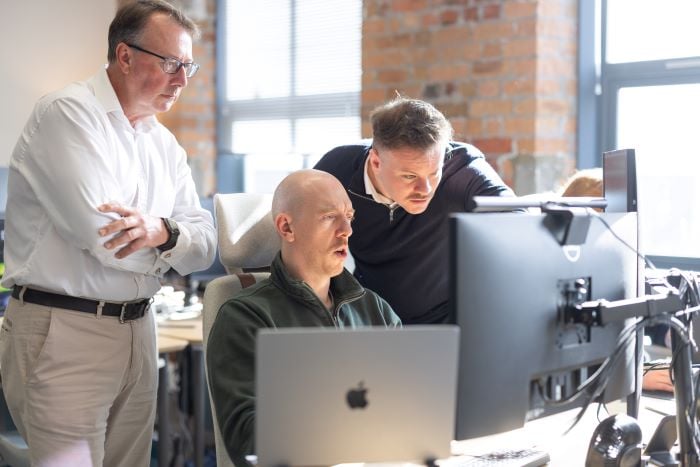
Tools to transform how insurers approach risk
Ceto’s data-driven approach promises to steer the industry towards safer, cleaner and more efficient vessel operation.
As well as helping vessel owners navigate current challenges – including managing ageing fleets and tightening environmental regulations – its innovations could completely reshape how insurers approach maritime risk.
“Insurance has a crucial role to play in supporting clients through these complexities, not just by providing protection, but by evolving alongside the industry to remain relevant and forward-looking,” explains Danny Whiteside, Head of Marine, Cargo & Logistics at Howden.
“Ceto is a clear example of that evolution; by providing a comprehensive support system built around data, risk insights and responsive underwriting, it empowers clients to make informed decisions and adapt with confidence,” he says.
2020
Ceto founded
£1.5m
pre-seed funding (UK investor-led) in 2023
US$4.8m
seed funding (US investor-led) in 2025
The problem, part two: getting it off the ground
Hildrew knew the potential for his products and the technology driving them – and investors started to take notice. But not before initially bootstrapping and doing everything possible to become known to potential investors.
“We basically spoke to anybody who would listen,” he explains. “We closed an angel round in December 2021, and from there, we began to really grow as a business.”
Product development accelerated. “We then started to capture sensor data from onboard pilot vessels to confirm the hypothesis – that sensor data could be used for better risk selection.”
Securing funding, plotting growth
Fast forward to October 2023, when the company secured £1.5m in pre-seed funding led by Howden Ventures with participation from Chaucer Group, Founders Factory and existing investors from the Business Investors Group.
This was a huge step for its growth ambitions, and for accessing the intended market. For Hildrew, the partnership was a natural fit.
“The brokers, the distribution network, the opportunities – it’s unparalleled, including ties to some of the largest ship owners and operators across the maritime sector,” he says. And this has helped accelerate building a robust client base.
“The platform gives you access to seven global markets. That’s going to be very difficult achieve on your own as a start-up.”
Removing roadblocks
There were, inevitably, sleepless nights along the way. Getting to grips with Financial Conduct Authority (FCA) regulations as an MGA (being new to the insurance industry), and gaining the necessary traction, proved a learning curve.
Fortunately, as a Howden Ventures portfolio company, Ceto received all the support it needed to achieve MGA status, including guidance on due diligence so marketing materials wouldn’t fall foul of regulations. It also meant instant access to support through any challenging situations.
When ramping up sales became a priority for Ceto’s investors, a next-day strategic planning session in Newcastle with Tom and Luke reduced the pressure on the founder. And this paid off. “Over the next two to three weeks, we'd gone from having eight vessels on the platform to 35, ready to go,” he says.

Assembling a “crazy-committed” team
Founders need a team that’s fully aligned with the company’s mission. For Hildrew, that’s a deal-breaker. “We've probably interviewed 50 different candidates for some of the roles,” he says.
There’s no compromise in the qualities he’s looking for. “Are they motivated and driven to better themselves, better the company, and will they be obsessed with solving this problem for the next three to five years?”
When asked if he’d have done anything differently, Hildrew says he'd have taken on a chief underwriter sooner, to help deliver at a quicker pace. Though Bob Clarkson, with over 30 years’ experience in marine insurance (and introduced through Howden Marine), was perhaps worth waiting for.
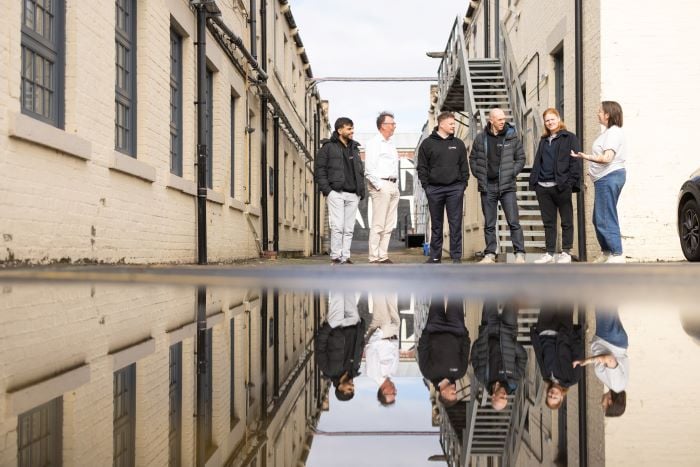
What’s new, and what’s next?
With continued focus on user interface, user experience and product, Ceto plans to keep pushing boundaries in its platform’s capabilities and key partnerships.
Raising the bar – and US$4.8m in seed funding
In April 2025, Ceto completed its US$4.8m latest seed round led by US-based Dynamo Ventures, with participation from Howden Ventures, Signal Ventures and Motion Ventures.
This major milestone means the business can scale faster, strengthen collaborations across maritime and move forward in setting a new standard for global maritime operations.
Day to day, continually developing and refining its products and platform capabilities remains front and centre for Hildrew. Customer feedback is a strong motivator for the founder. “It's really all about how we can save people time and money,” he says.
With a growing number of fleets on the platform and a global client base (including a major Japanese shipping operator) – and a dedicated team of engineers, creatives and maritime veterans on board (and currently hiring) – Ceto shows no sign of slowing down.
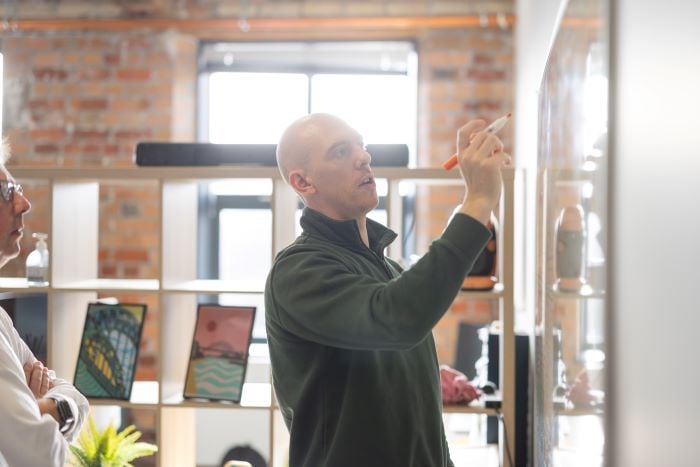
[1] UN Trade and Development (UNCTAD), Review of Maritime Transport 2024.

Be first in line for portfolio news, market trends, and expert takes on technology and risk
Stay up to date by subscribing to our Howden Ventures quarterly update. We're confident it'll earn its spot in your inbox.